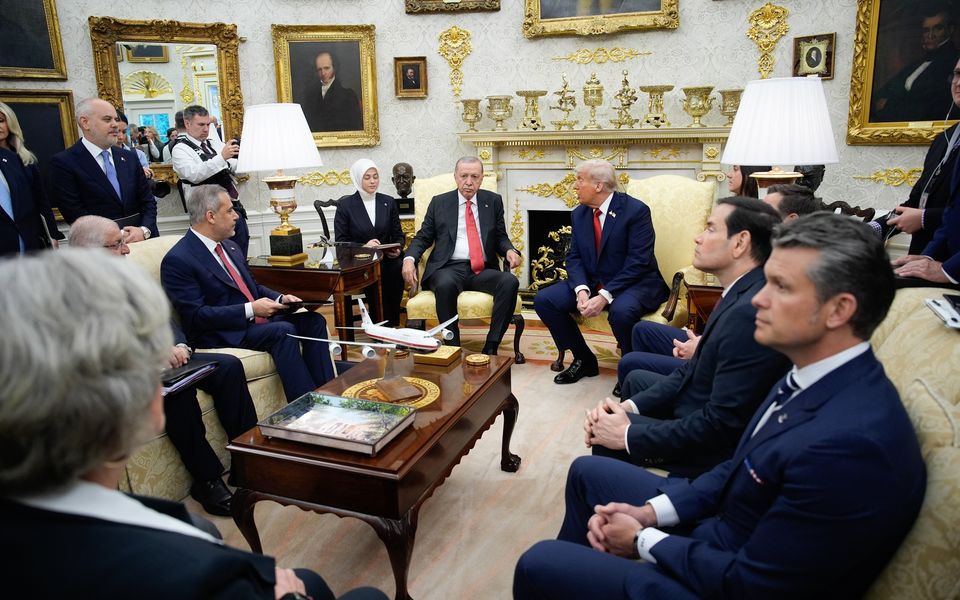Turkey’s push to rejoin the F-35 fighter jet program resurfaced in talks at the White House on Thursday between President Recep Tayyip Erdogan and US President Donald Trump, a request Ankara has pursued since its removal from the program in 2019.
The discussions covered the F-16 and F-35 programs, the US sanctions imposed on Turkey (the Countering America’s Adversaries Through Sanctions Act, or CAATSA), and issues of religious freedom. Before the meeting with Erdogan, Trump said, “I think he’ll be successful in buying the things he’d like to buy.”
He also said that the best thing Erdogan can do to help Ukraine is not buy Russian oil and gas.
US sanctions followed Turkey’s purchase of Russian S-400 missile systems, with Congress passing legislation blocking F-35 exports to Ankara. Analysts in Athens note that lifting such sanctions under CAATSA, even if considered, would not be straightforward under US law. Still, Erdogan appears to enjoy renewed White House access, raising concerns in Greece.
The Biden administration previously approved the sale of new F-16s to Turkey and upgrades for its aging fleet, while simultaneously advancing Greece’s acquisition of F-35s. Athens is set to receive its first of 20 F-35s in 2028 and holds an option for 20 more. That timeline gives Greece an advantage even if Washington were to reconsider Turkey’s exclusion.
Turkey’s modernization of its F-16 fleet remains critical, though Ankara has scaled back its budget, prioritizing other defense needs.
Ahead of the Trump-Erdogan meeting, 20 bipartisan members of Congress, including Greek-American lawmakers Chris Pappas, Gus Bilirakis, Dina Titus and Nicole Malliotakis, warned against arms sales to Turkey. In their letter to the secretaries of state and defense, they cited Ankara’s continued possession of the S-400 system, which they said poses a serious threat to US national security by potentially monitoring and analyzing American aircraft like the F-16 and F-35. They emphasized that any F-16 or F-35 sales to Turkey without congressional approval would violate US law and undermine congressional authority. For Athens, the debate underscores a long-standing question: whether Washington will maintain its policy of ensuring Greek air superiority one step ahead of Turkey.
